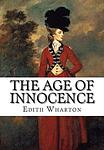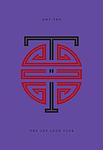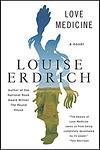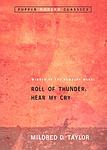The Greatest "Historical fiction, Family" Books of All Time
Click to learn how this list is calculated.
This list represents a comprehensive and trusted collection of the greatest books. Developed through a specialized algorithm, it brings together 300 'best of' book lists to form a definitive guide to the world's most acclaimed books. For those interested in how these books are chosen, additional details can be found on the rankings page.
Genres
Historical fiction is a genre of literature that combines fictional stories with real historical events, settings, and characters. These books often take place in a specific time period and are based on research and factual information, but also include imaginative elements to create a compelling narrative. Historical fiction allows readers to experience the past in a unique and engaging way, while also providing insight into the social, cultural, and political issues of the time.
The "Family" category of books encompasses stories that revolve around the dynamics, relationships, and experiences of families. These books explore the complexities of familial bonds, including love, loyalty, conflict, and forgiveness. They may focus on different types of families, such as nuclear families, blended families, or extended families, and may cover a range of themes, from coming-of-age tales to domestic dramas. Overall, the "Family" category offers a rich and diverse collection of books that delve into the joys and challenges of family life.
Countries
Date Range
Reading Statistics
Click the button below to see how many of these books you've read!
Download
If you're interested in downloading this list as a CSV file for use in a spreadsheet application, you can easily do so by clicking the button below. Please note that to ensure a manageable file size and faster download, the CSV will include details for only the first 500 books.
Download-
1. To Kill a Mockingbird by Harper Lee
Set in the racially charged South during the Depression, the novel follows a young girl and her older brother as they navigate their small town's societal norms and prejudices. Their father, a lawyer, is appointed to defend a black man falsely accused of raping a white woman, forcing the children to confront the harsh realities of racism and injustice. The story explores themes of morality, innocence, and the loss of innocence through the eyes of the young protagonists.
-
2. The Grapes of Wrath by John Steinbeck
The book follows the Joad family, Oklahoma farmers displaced from their land during the Great Depression. The family, alongside thousands of other "Okies," travel to California in search of work and a better life. Throughout their journey, they face numerous hardships and injustices, yet maintain their humanity through unity and shared sacrifice. The narrative explores themes of man's inhumanity to man, the dignity of wrath, and the power of family and friendship, offering a stark and moving portrayal of the harsh realities of American migrant laborers during the 1930s.
-
3. The Sound and the Fury by William Faulkner
The novel is a complex exploration of the tragic Compson family from the American South. Told from four distinct perspectives, the story unfolds through stream of consciousness narratives, each revealing their own understanding of the family's decline. The characters grapple with post-Civil War societal changes, personal loss, and their own mental instability. The narrative is marked by themes of time, innocence, and the burdens of the past.
-
4. Middlemarch by George Eliot
Set in the fictitious English town of Middlemarch during the early 19th century, the novel explores the complex web of relationships in a close-knit society. It follows the lives of several characters, primarily Dorothea Brooke, a young woman of idealistic fervor, and Tertius Lydgate, an ambitious young doctor, who both grapple with societal expectations, personal desires, and moral dilemmas. Their stories intertwine with a rich tapestry of other townsfolk, reflecting themes of love, marriage, ambition, and reform, making a profound commentary on the human condition.
-
5. Midnight's Children by Salman Rushdie
The novel tells the story of Saleem Sinai, who was born at the exact moment when India gained its independence. As a result, he shares a mystical connection with other children born at the same time, all of whom possess unique, magical abilities. As Saleem grows up, his life mirrors the political and cultural changes happening in his country, from the partition of India and Pakistan, to the Bangladesh War of Independence. The story is a blend of historical fiction and magical realism, exploring themes of identity, fate, and the power of storytelling.
-
6. Absalom, Absalom! by William Faulkner
This novel is a complex narrative about Thomas Sutpen, a poor white man who rises to power in the South, aiming to create a dynasty that would rival the old aristocratic families. However, his ambitions are thwarted by his own flawed decisions and the overarching racial and societal tensions of the era. The story is not told in a linear fashion but rather through a series of interconnected flashbacks and narratives, offering different perspectives on the same events. The book explores themes of family, class, race, and the destructive power of obsession.
-
7. The Age of Innocence by Edith Wharton
Set in the 1870s, the novel revolves around Newland Archer, a young lawyer from New York's high society, who is engaged to the beautiful and conventional May Welland. His life takes a turn when he meets May's cousin, the Countess Ellen Olenska, who has returned from Europe after leaving her scandalous husband. Torn between his duty and passion, Archer struggles with the constraints of the society he is a part of. The book offers a vivid portrayal of the struggle between individual desires and societal expectations in the upper-class New York society of the late 19th century.
-
8. Wide Sargasso Sea by Jean Rhys
This novel is a postcolonial prequel to "Jane Eyre," exploring the life of Mr. Rochester's mad wife, Bertha. Set in Jamaica during the 1830s, it follows the story of Antoinette Cosway, a white Creole heiress, from her youth in the Caribbean to her unhappy marriage and move to England. Caught in a society that both rejects and exoticizes her, Antoinette is ultimately driven into madness by her oppressive husband and the haunting legacy of colonialism.
-
9. Buddenbrooks by Thomas Mann
"Buddenbrooks" is a novel that chronicles the decline of a wealthy north German merchant family over the course of four generations. The narrative focuses on the fluctuating fortunes and internal struggles of the family, reflecting the societal changes and economic decline of the period. The family's personal and business relationships, their moral values, and their struggle to maintain social status are all explored against the backdrop of the changing political and social landscape.
-
10. Brideshead Revisited by Evelyn Waugh
The novel is a nostalgic story about the narrator's involvement with the Flyte family, British aristocrats living in a grand mansion called Brideshead. The story explores themes of faith, love, and the decline of the British aristocracy, primarily through the narrator's relationships with the family's Catholic faith and his complicated friendship with the family's son and his love for the daughter. The novel is set in the backdrop of the time period between the two World Wars.
-
11. Atonement by Ian McEwan
Atonement is a powerful novel that explores the consequences of a young girl's false accusation. The narrative follows the lives of three characters, the accuser, her older sister, and the sister's lover, who is wrongly accused. This false accusation irrevocably alters their lives, leading to the accused's imprisonment and eventual enlistment in World War II, while the sisters grapple with guilt, estrangement, and their own personal growth. The novel is a profound exploration of guilt, forgiveness, and the destructive power of misinterpretation.
-
12. The Joy Luck Club by Amy Tan
This novel explores the complex relationships between four Chinese-American mothers and their American-born daughters. The narrative switches between the perspectives of the eight women, revealing their pasts, their struggles with cultural identity, and the misunderstandings that have grown between the generations. The mothers, who all experienced hardship in their native China, want their daughters to have better lives and thus push them to excel in America. The daughters, in turn, struggle to reconcile their American surroundings with their Chinese heritage.
-
13. The Good Earth by Pearl S. Buck
This novel tells the story of a poor farmer in rural China, who struggles to survive and prosper. Over time, he manages to build a life for himself and his family, eventually becoming a wealthy landowner. However, his newfound wealth and status lead to a moral decline, as he becomes disconnected from the land that gave him everything. The narrative explores themes of wealth, poverty, and the human connection to the earth.
-
14. East of Eden by John Steinbeck
This novel is a multi-generational epic that follows the lives of the Trask and Hamilton families in the Salinas Valley in California. The story is deeply rooted in biblical allegory, particularly the tale of Cain and Abel, as it explores themes of love, guilt, freedom, and the inherent good and evil in human nature. The narrative provides a profound, complex portrayal of family and individual struggles with morality and love, while also reflecting on the social changes affecting America during the late 19th and early 20th centuries.
-
15. The Old Wives' Tale by Arnold Bennett
This novel explores the lives of two sisters, Constance and Sophia Baines, who are brought up in a small town drapery shop in the mid-19th century. Constance remains in their hometown, marries and leads a relatively uneventful life, while Sophia elopes to Paris with a traveling salesman, living through the Siege of Paris and the Franco-Prussian War. The book contrasts the sisters' different experiences and how their choices shape their lives, ultimately reuniting them in their old age.
-
16. Ragtime by E. L. Doctorow
Set in the early 20th century, this novel intertwines the lives of fictional characters with real historical figures, creating a vivid portrayal of America's past. The narrative follows the lives of an upper-class family in New Rochelle, New York, an African-American musician from Harlem, and a Jewish immigrant and his daughter, while also featuring historical figures like Harry Houdini, J.P. Morgan, and Henry Ford. The novel explores themes of wealth, race, and class, against a backdrop of significant historical events, such as the onset of World War I and the rise of the labor movement.
-
17. A Suitable Boy by Vikram Seth
Set in 1950s India, this epic novel follows the story of four families over a period of 18 months, focusing primarily on the young woman Lata and her mother's quest to find her a suitable husband. The narrative explores the political, social, and personal upheavals in a newly independent India, struggling with its own identity amidst the backdrop of a society grappling with religious tensions, land reforms, and the shaping of a modern democratic state. Lata's journey is an exploration of love, ambition, and the weight of familial duty.
-
18. I Capture the Castle by Dodie Smith
"I Capture the Castle" is a coming-of-age novel that tells the story of 17-year-old Cassandra Mortmain and her eccentric family living in a dilapidated English castle during the 1930s. Cassandra's father is a reclusive writer suffering from writer's block and her stepmother is a bohemian artist. The family's life changes dramatically when two American brothers inherit the estate. The novel, written in diary format, explores themes of love, poverty, and the transition from adolescence to adulthood.
-
19. The Forsyte Saga by John Galsworthy
"The Forsyte Saga" is a series of three novels and two interludes that chronicle the lives of a wealthy, upper-middle-class family in England during the late 19th and early 20th centuries. The saga explores themes of social class, wealth, love, and the changing societal norms of the time, with a particular focus on the character of Soames Forsyte and his obsessive desire to possess both people and things. The narrative provides a detailed examination of the family's fortunes, misfortunes, and intricate relationships, offering a critique of the materialistic culture of the era.
-
20. Kristin Lavransdatter by Sigrid Undset
Set in 14th century Norway, "Kristin Lavransdatter" follows the life of its titular character from her childhood, through her tumultuous and passionate marriage to Erlend Nikulausson, to her life as a mother and eventual widow. The narrative explores Kristin's struggles with faith, societal expectations, and personal desires, offering a vivid portrayal of medieval Scandinavian life along the way. Despite the many hardships she faces, Kristin remains a strong and resilient woman, embodying the spirit of her time.
-
21. Silas Marner by George Eliot
Silas Marner, a weaver, is wrongfully accused of theft and excommunicated from his community in Lantern Yard. He moves to the village of Raveloe, where he lives as a recluse, hoarding his money. After his money is stolen, he adopts a young girl named Eppie, who was abandoned near his home. Eppie's presence transforms Silas's life, and he becomes a cherished member of the community. The novel explores themes of betrayal, redemption, and the transformative power of love.
-
22. Independent People by Halldor Laxness
"Independent People" is a novel set in rural Iceland, following the life of a stubborn sheep farmer who values his independence above all else. Despite facing numerous hardships, including poverty, harsh weather, and family strife, he refuses to accept help or compromise his self-reliance. The book explores themes of pride, the struggle for survival, and the human spirit's resilience in the face of adversity.
-
23. The House of the Seven Gables by Nathaniel Hawthorne
This novel revolves around the cursed Pyncheon family, who live in a gloomy New England mansion, cursed due to the actions of their ancestor who had an innocent man hanged as a witch to seize his property. The story explores themes of guilt, retribution, and atonement, and the narrative is interspersed with the author's philosophical musings. The present-day Pyncheons include an old maid, a daguerreotypist, and their elderly, reclusive cousin who returns to the house after a mysterious absence of many years.
-
24. Love Medicine by Louise Erdrich
"Love Medicine" is a novel that explores the lives of several generations of a Native American family living on a reservation in North Dakota. The narrative is presented through a series of interconnected stories, each told from the perspective of different family members, and spans over 60 years, from 1934 to 1999. The book explores themes of love, family, identity, and the struggle between tradition and modernity. It provides a deep and poignant look into the complexities of Native American life and culture, and the challenges faced by the community.
-
25. Roll of Thunder, Hear My Cry by Mildred D. Taylor
Set in Mississippi during the Great Depression, this novel follows the life of a young African American girl and her family who are struggling to maintain their integrity, pride, and independence in the face of racism and social injustice. The family owns a piece of land which provides them some protection from the harsh realities of racial discrimination. The story is a poignant exploration of how they navigate through a prejudiced society, face social and economic challenges, and fight to keep their land.
Reading Statistics
Click the button below to see how many of these books you've read!
Download
If you're interested in downloading this list as a CSV file for use in a spreadsheet application, you can easily do so by clicking the button below. Please note that to ensure a manageable file size and faster download, the CSV will include details for only the first 500 books.
Download























